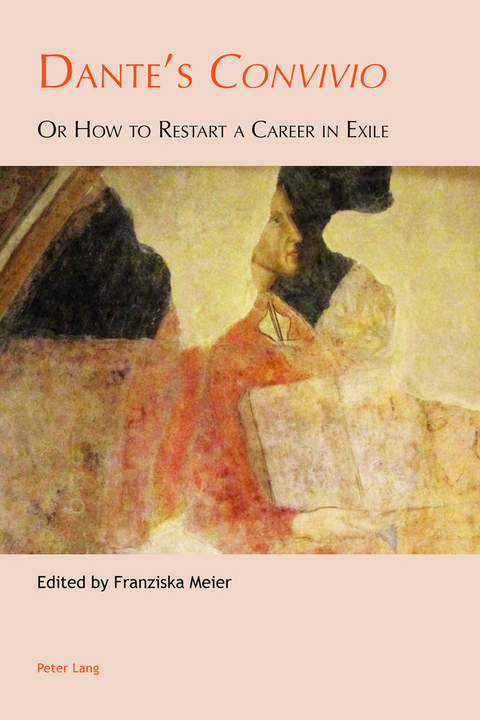
Dante's «Convivio»
Peter Lang Group Ag, International Academic Publishers (Verlag)
978-3-0343-1835-8 (ISBN)
lt;p>Dante's unfinished work, the Convivio, his first book written in exile, is often overlooked. This volume, instead of promoting the idea that Dante's career evolved continuously from the youthful Vita nova through to the Commedia, takes the Convivio as Dante's first attempt to reassemble and reshape the remains of his Florentine past - from his love poetry to his philosophical readings - in order to construct a new way of defining himself as a writer after 1302. Contributors to the volume explore the Convivio from a variety of different angles, including the issue of genre, the relationship between poetry and prose and Dante's concept of the reader, as well as examining the importance of ideas such as nobility, the vernacular and Roman law.
Franziska Meier is Professor of Romance Philology (French and Italian Literature) at the Georgia Augusta University, Göttingen. Her early research in Italian studies focused on modern literature, particularly the relationship of novelists with fascism and the anti-fascist resistance movement. More recently, her scholarly interests have converged on Dante, Boccaccio and Renaissance art history.
lt;p>CONTENTS: Zygmunt G. Baranski: «Oh come e grande la mia impresa»: Notes towards Defining Dante's Convivio - Enrico Fenzi: «Per suo desiderio sua perfezione non perde»: Knowledge and Happiness in the Third and Fourth Books of the Convivio - Theodore J. Cachey Jr: «Alcuna cosa di tanto nodo disnodare»: Cosmological Questions between the Convivio and the Commedia - Anna Pegoretti: «Da questa nobilissima perfezione molti sono privati»: Impediments to Knowledge and the Tradition of Commentaries on Boethius' Consolatio Philosophiae - Franziska Meier: «Questa sara luce nuova, sole nuovo»: Dante and the Vernacular in Convivio I - Albert Russell Ascoli: «Ponete mente almeno come io son bella»: Prose and Poetry, «pane» and «vivanda», Goodness and Beauty, in Convivio I - Maria Luisa Ardizzone: «Ne la selva erronea»: Dante's Quaestio on Nobility and the Criticism of Materialism - Andrea Aldo Robiglio: «Poi che purgato e questo pane»: Vindication and Recognition in Dante's Convivio - Lorenzo Valterza: «Pero si mosse la Ragione a comandare che ...»: Roman Law and Ethics in the Convivio - Enrica Zanin: «Miseri, 'mpediti, affamati»: Dante's Implied Reader in the Convivio - Donatella Stocchi-Perucchio: «Tu l'hai fatto di poco minore che li angeli»: Nobility, Imperial Majesty, and the Optimus Finis in Convivio IV and Monarchia - Luca Azzetta: «Di questo parla l'autore in una chiosa d'una sua canzone»: The Convivio through the Eyes of Its First Readers.
| Erscheinungsdatum | 03.01.2018 |
|---|---|
| Reihe/Serie | Leeds Studies on Dante ; 3 |
| Verlagsort | Oxford |
| Sprache | englisch |
| Maße | 148 x 210 mm |
| Gewicht | 425 g |
| Themenwelt | Geschichte ► Allgemeine Geschichte ► Mittelalter |
| Geisteswissenschaften ► Philosophie | |
| Geisteswissenschaften ► Sprach- / Literaturwissenschaft ► Literaturwissenschaft | |
| Geisteswissenschaften ► Sprach- / Literaturwissenschaft ► Romanistik | |
| Schlagworte | Career • Claire • «Convivio» • Convivio» • Dante • Dante's • Dante's Convivio • exile • Franziska • Honess • Italian Medieval Studies • Matthew • Meier • Philosophy in the Vernacular • Restart • Treherne |
| ISBN-10 | 3-0343-1835-9 / 3034318359 |
| ISBN-13 | 978-3-0343-1835-8 / 9783034318358 |
| Zustand | Neuware |
| Haben Sie eine Frage zum Produkt? |
aus dem Bereich


